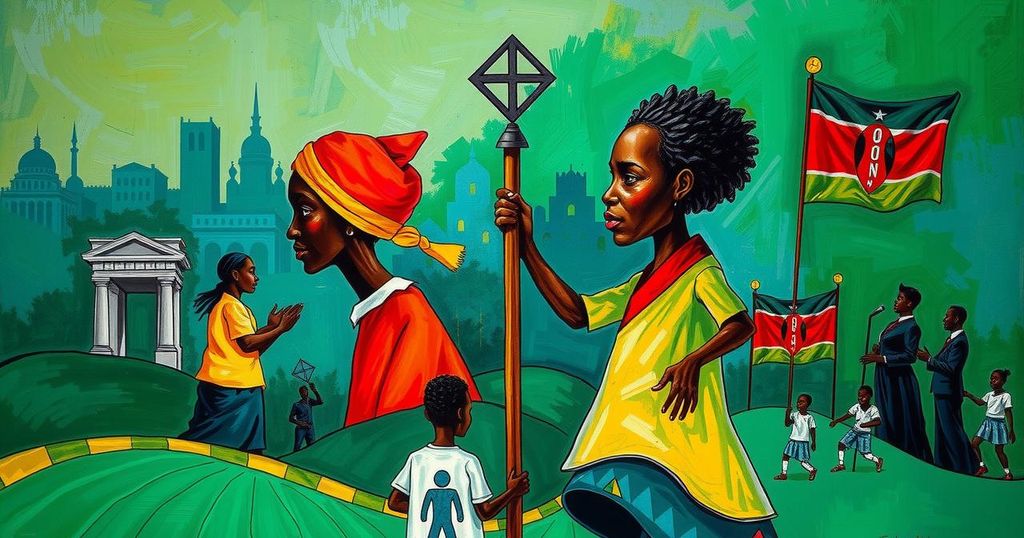World news
” RUTO, AFRICA, AFRICAN UNION, CORRUPTION, DJIBOUTI, FINANCE BILL, GOVERNANCE, KA, KALONZO MUSYOKA, KENYA, MAHMOUD ALI YOUSSOUF, NAIROBI, NANJALA NYABOLA, ODINGA, OPPOSITION, ORANGE DEMOCRATIC MOVEMENT, POLITICS, RUTO, TRANSITIONAL GOVERNMENT, UNITED DEMOCRATIC ALLIANCE, WIPER DEMOCRATIC PARTY
Lena Nguyen
0 Comments
Kenyan Pact Between Government and Opposition Sparks Political Controversy
The Kenyan government signed a controversial agreement with the opposition, raising criticism of undermining democratic opposition. Leaders Odinga and Ruto insist the pact serves as a framework for policy consultation rather than political power distribution. However, detractors view it as a betrayal, questioning the future of political opposition in the country.
The Kenyan government’s recent agreement with the principal opposition party has sparked significant criticism. This pact aims to involve both parties in essential government policymaking, yet many assert it serves to stifle opposition voices. Raila Odinga, leader of the Orange Democratic Movement, emphasized that the agreement is not a new political formation, but rather a step towards nation-building.
President William Ruto, head of the United Democratic Alliance, commended Odinga for making difficult decisions that benefit the Kenyan populace, contrasting them with past politically correct choices by leaders. Political analyst Nanjala Nyabola raised the question of the viability of opposition in Parliament, reflecting widespread concern over this perceived political partnership.
Kalonzo Musyoka, leader of the Wiper Democratic Party, denounced the pact as a betrayal of the Kenyan people, indicating dissatisfaction with the decision. This agreement marks the fourth occasion for Odinga, a seasoned politician with multiple electoral defeats, to establish a partnership with the ruling president, raising questions about its legitimacy.
Odinga and Ruto clarified that their collaboration does not intend to distribute governmental positions but rather fosters a consultative framework on critical issues impacting Kenya. Odinga remarked that this initiative could help reduce national tensions and acknowledged the necessity of the opposition to engage constructively rather than merely critique.
The Kenyan opposition has faced backlash for its silence amidst government tax increases and repression of anti-government protests occurring in June 2024. Additionally, Odinga’s recent failure in the African Union chairperson election has contributed to uncertainty about his political trajectory.
In conclusion, the agreement between the Kenyan government and the opposition raises significant concerns over the effectiveness and independence of the opposition in Kenya. Critics argue that this pact could undermine democratic principles while its proponents claim it is a necessary step towards national unity and addressing pressing challenges. The future of Kenyan politics remains uncertain as the ramifications of this political alliance unfold.
Original Source: www.washingtonpost.com




Post Comment